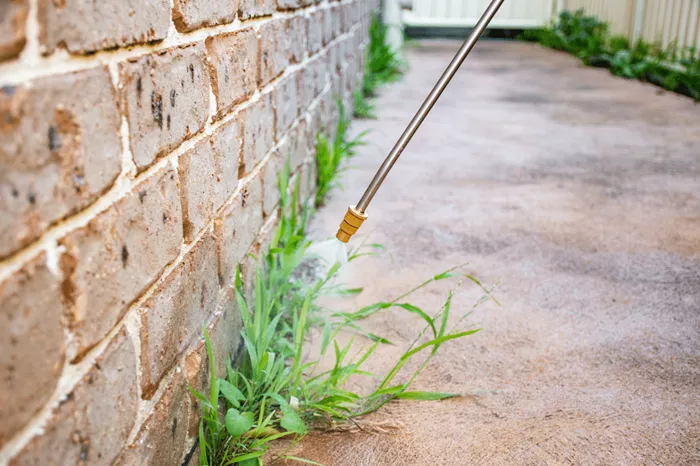Many people look for easy ways to get rid of weeds. Some wonder if red diesel can kill them. Red diesel is a type of fuel used for off-road vehicles, farming equipment, and heating. It is cheaper than regular diesel because it has fewer taxes. Some people believe it can be used as a weed killer. But is it safe and effective? This article will explore whether red diesel kills weeds, how it works, and the risks involved.
What Is Red Diesel?
Red diesel is regular diesel fuel with a red dye added to it. The dye helps authorities identify it because it is only for specific uses. Farmers, construction workers, and people who use generators often rely on red diesel. It works the same way as regular diesel but is not for road vehicles. Using red diesel in regular cars is illegal in many countries.
Can Red Diesel Kill Weeds?
Yes, red diesel can kill weeds. Diesel is a petroleum product, and it is toxic to plants. When poured on weeds, it suffocates the roots and prevents growth. It also stops the plant from getting water and nutrients. Within a few days, the weeds dry out and die. Some people use diesel as a cheap alternative to herbicides. However, using diesel on weeds comes with many risks.
How Does Red Diesel Kill Weeds?
Red diesel kills weeds in several ways:
- Blocks Oxygen – Diesel forms a barrier on the soil and stops oxygen from reaching the roots.
- Stops Water Absorption – The fuel prevents water from getting to the plant, causing it to dry out.
- Poisons the Plant – Diesel is toxic, and it harms plant cells, leading to death.
- Damages the Soil – Diesel stays in the ground and prevents new plants from growing.
These factors make diesel effective at killing weeds, but they also create problems for the environment.
The Risks of Using Red Diesel as a Weed Killer
Even though diesel kills weeds, it is not a good choice for weed control. Here are some dangers of using red diesel on plants:
1. Environmental Damage
Diesel is a pollutant. When poured on the ground, it seeps into the soil and water supply. It can kill beneficial plants, harm insects, and poison animals. Rain can wash diesel into rivers and lakes, causing water pollution.
2. Soil Contamination
Diesel remains in the soil for a long time. It can prevent new plants from growing. Farmers and gardeners may find it difficult to plant anything in the treated area for months or even years. Diesel also affects soil bacteria that help plants grow.
3. Legal Issues
In many places, it is illegal to use diesel as a weed killer. Authorities consider it an improper use of fuel. It can lead to fines or penalties. Using red diesel for anything other than its intended purpose can cause legal trouble.
4. Health Risks
Diesel is harmful to humans. Breathing in diesel fumes can cause lung problems. Touching diesel can irritate the skin. If someone accidentally drinks diesel, it can lead to serious health issues.
5. Fire Hazard
Diesel is flammable. Spilling diesel on dry plants increases the risk of fire. A small spark can ignite the fuel and cause a wildfire. This is especially dangerous in dry seasons.
Safer Alternatives to Red Diesel for Killing Weeds
Instead of using red diesel, there are better ways to control weeds. Here are some safe and effective alternatives:
1. Boiling Water
Pouring boiling water on weeds is a natural way to kill them. The heat destroys the plant cells, causing them to die. This method is safe and does not harm the soil.
2. Vinegar
Vinegar is an excellent natural herbicide. The acetic acid in vinegar dries out weeds and kills them quickly. For stronger results, mix vinegar with dish soap and salt.
3. Salt
Salt can kill weeds by dehydrating them. However, it should be used in small amounts. Too much salt can harm the soil and prevent future plant growth.
4. Manual Removal
Pulling weeds by hand is the most effective long-term solution. It removes the plant and its roots, preventing regrowth.
5. Mulching
Covering the soil with mulch blocks sunlight and stops weeds from growing. Organic mulch, such as wood chips or straw, also improves soil health.
6. Herbicides
There are many safe and approved herbicides available. They kill weeds without harming the environment. Choose herbicides that break down quickly and do not stay in the soil.
Conclusion
Red diesel can kill weeds, but it is not a good solution. It harms the environment, contaminates soil, and poses legal and health risks. There are many safer alternatives, such as vinegar, boiling water, salt, and manual removal. If you need to control weeds, it is best to use eco-friendly methods. Keeping the environment safe should always be a priority.
FAQs
Is AdBlue good for killing weeds?
No, AdBlue is not an effective weed killer. It is a solution of urea and deionized water, primarily used to reduce vehicle emissions. While urea is a common ingredient in fertilizers, AdBlue is not formulated for weed control and may not kill weeds effectively. Additionally, using it on plants may lead to unintended environmental harm.
Will engine oil kill weeds?
Yes, engine oil can kill weeds, but it is not a recommended method. When poured onto weeds, engine oil can suffocate the plants by blocking oxygen and water absorption. However, using engine oil as a weed killer is harmful to the soil and the environment, as it contaminates the ground and poses a risk to water sources.
Is motor oil toxic to plants?
Yes, motor oil is toxic to plants. It prevents plants from absorbing water and nutrients, leading to their death. Additionally, motor oil can contaminate the soil, making it unsuitable for future plant growth. It is also harmful to wildlife and can pollute water sources. Proper disposal of motor oil is essential to avoid environmental damage.

